By: Addie Flesch
We are nearly two weeks into our Global Semester journey and it’s time for an update. We are beginning on a three and a half month journey that will take us to Costa Rica, South Africa, Namibia, and Vietnam. Each of us, “Globies”, will take a turn writing a blog post connecting our experiences to our learning takeaways.
To begin our semester, we spent a few days at ARC Retreat Community in Stanchfield, MN. ARC hosts different groups nearly year round for them to experience solitude and reconnect. The lodge was built 50 years ago by volunteers and remains run by volunteers today. We enjoyed some incredible farm-to-table meals made from scratch in their kitchen. The volunteers at ARC were a great example of what can be accomplished through community. It was valuable to experience their idea of community before defining our own as a group.
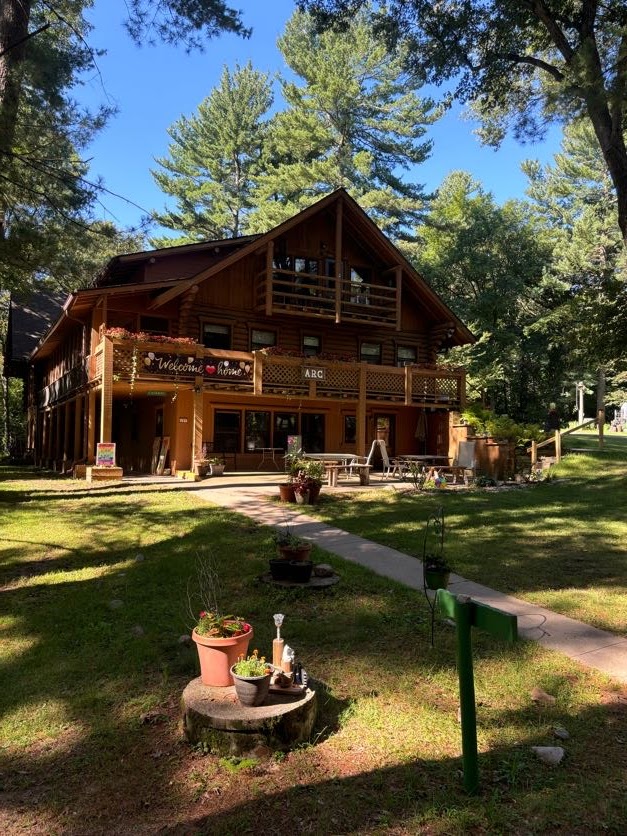
The volunteers at ARC also taught us a lesson in gratitude. They were so excited to host such a lively group of young people that they were willing to pitch tents on the property just to be part of the experience. Throughout the semester, we will continue to reflect on gratitude and how fortunate we all are to have this opportunity. It will be important to remember gratitude even through the challenging moments of Global.
While spending time at ARC Retreat Center, students were broken into groups to research and present information on each of the four countries we will be traveling to. Not only did we include basic geographical information, but also considered each country’s history, politics, relationship with the U.S, and inequalities. As we travel and live abroad it is important to think about what is considered “normal” in each country’s culture. As students studying in the United States, we have our own definition of “normal” that may differ from other countries. When traveling to a new place, educating yourself on cultural norms is essential to be respectful of a differing culture.
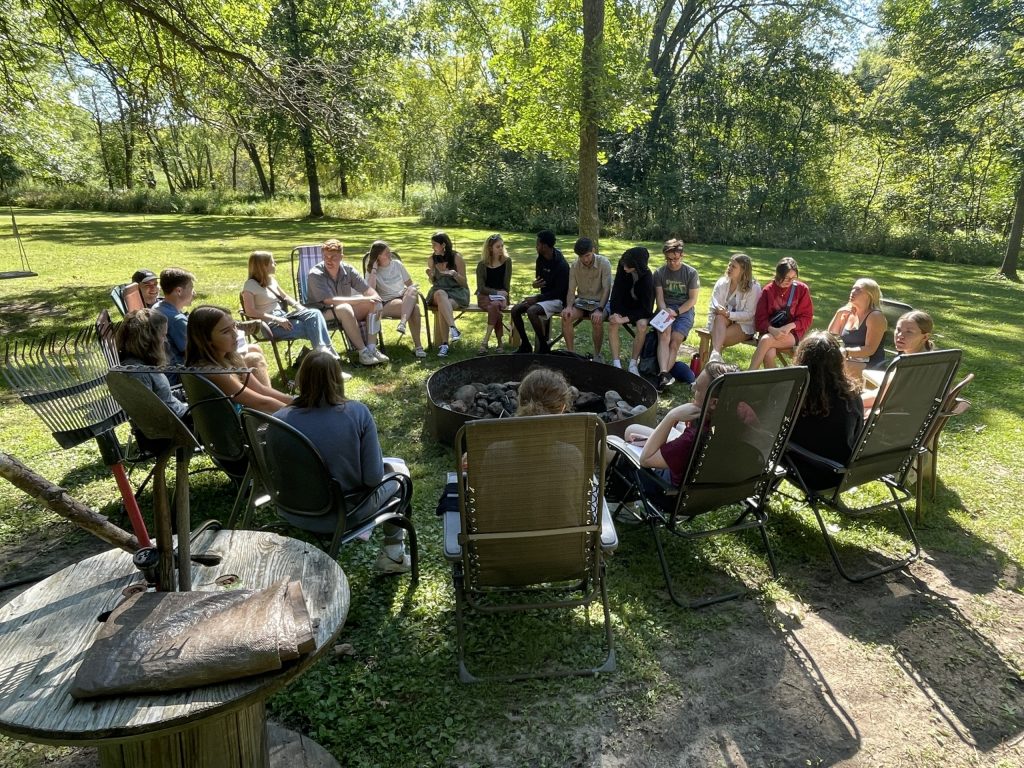
We had a discussion near the end of our time at ARC over Anu Taranth’s book, Beyond Guilt Trips: Mindful Travel in an Unequal World. Taranth’s writings will guide our discussions throughout the semester on our governing theme of ethical study and service abroad. The beginning chapters focused on differences amongst people such as race, creating ingroups and outgroups. Taranth writes that “Acknowledging race is certainly not the same as being racist” (Taranth 10). It is possible, and even necessary sometimes, to discuss differences between a neighbor and yourself in a productive way to create compassion toward one another. This idea became a reality when Professor Leer asked us to turn to the student sitting next to us and have a conversation with the goal of finding out our differences. I assume over the course of the semester, we will become more comfortable with having open and honest conversations about how we differ from others.
After a few days at ARC, we said our goodbyes and flew to San José, Costa Rica. Costa Rica has a population of five million people with half of them living in the capital of San José. We began the week by exploring the city; visiting markets, museums, and parks. Later in the week, we began class at the Organization of Tropical Studies at the University of Costa Rica. Our course in Costa Rica is focused around environmental sustainability and taught by OTS Professor Emilia Triana and teaching assistant Andrés Rojas Zari. OTS partners with around 50 universities in the U.S and aims to sustain tropical ecosystems through education. OTS has four research stations, three in Costa Rica (La Selva, Las Cruces, Palo Verde) and one in South Africa (Skukuza). We listened to a handful of guest lecturers over our time, learning about Costa Rica’s biodiversity, culture, circular economy, and green urban economy.
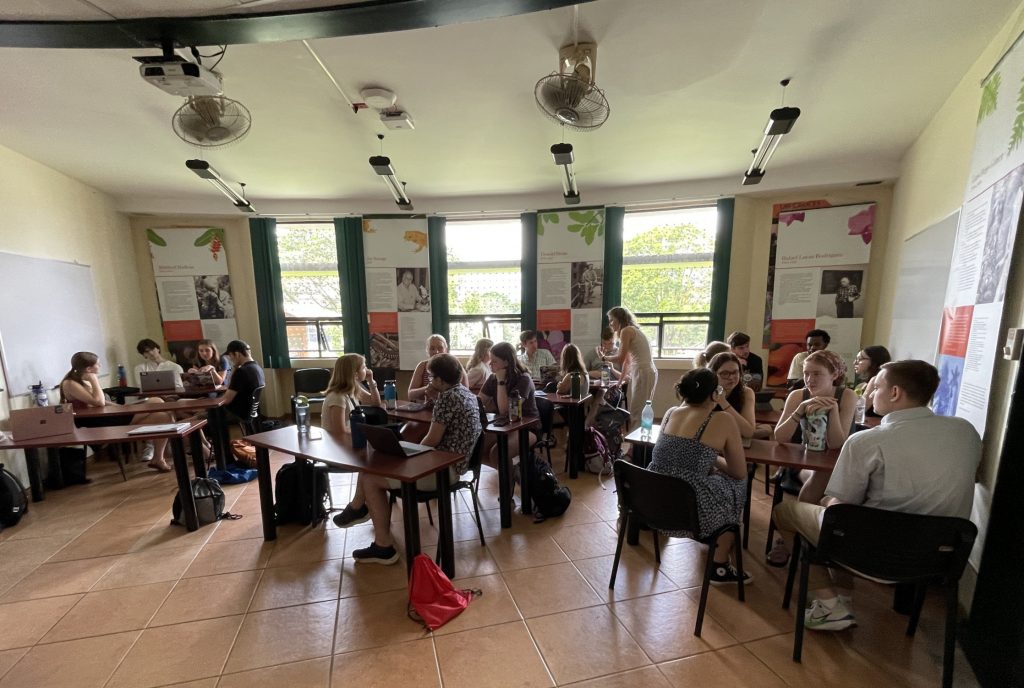
Jumping back to Professor Leer’s course on ethical study/service abroad, we began discussing the sustainability of tourism in Costa Rica. Tourism is Costa Rica’s most profitable industry. While tourism creates jobs and benefits the economy, it can also be unethical. Unethical tourism exploits people, natural resources, and the environment. Pico Iyer, the author of Sun After Dark: Flights into the Foreign, writes on a trip from Cambodia:
“Tourism was turning the children into parasites, yet the absence of tourism might turn them into skeletons”
Barbour 47
As we walked around the central market in San José looking at trinkets and souvenirs; we had to ask ourselves if it was worth it to barter over 1000 colónes which is around 2 USD. Could 1000 colónes go farther for the shopkeeper? As tourists, it is crucial to think about your intentionality behind travel. What do you hope to gain from this experience? Why are you traveling to your destination? Am I being an ethical traveler?
As we continue our semester as a group of students studying abroad, our position on whether or not we are tourists can become complicated. Astrid Jirka wrote an article titled “Responsible Travel and Study Abroad” that states students studying abroad do become tourists. However, students studying abroad are not “set free in a new land to relax or do whatever you please” (Jirka). Similarly Ralph Waldo Emerson writes that “He [Emerson] has no objection to traversing great distances for the purpose of art, of study, and benevolence” (Callard). In addition to the occasional fútbol game, we are in Costa Rica to learn about ecotourism, sustainability, and the ethics of travel. Does that make us ethical travelers? What is an ethical traveler?
In our first journal entry assignment from Professor Leer, we were asked to reflect on our own identity around travel and study abroad in hopes to answer some of these questions. We spent time thinking about what experiences we’ve had around travel and what it meant to us growing up. Over the course of the semester each student will develop their own idea of ethical travel that will hopefully guide them for the rest of their lives.
To wrap things up, we are now at La Selva Biological Station, one of OTS’s research stations. We will be here for a total of 10 days exploring their more than 3,700 acres of protected rainforest. We have already seen poison dart frogs, howler monkeys, sloths, birds, and leafcutter ants. This week we also celebrated Tejas and Grace’s 21st birthdays! Our time here has been a good change of pace filled with dance parties and Game of Thrones viewing parties. We’ve been enjoying the rainforest and spending time together.







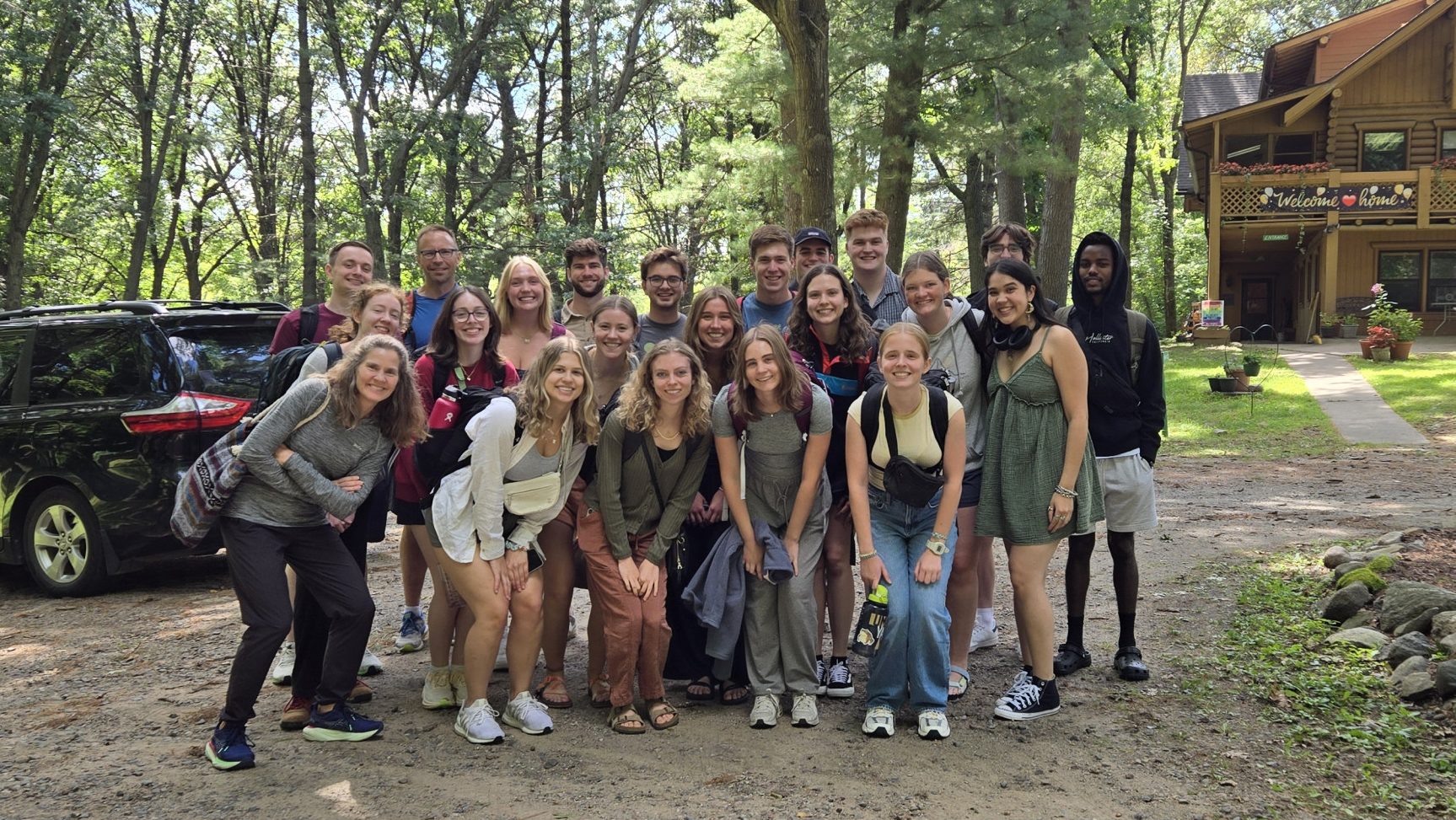
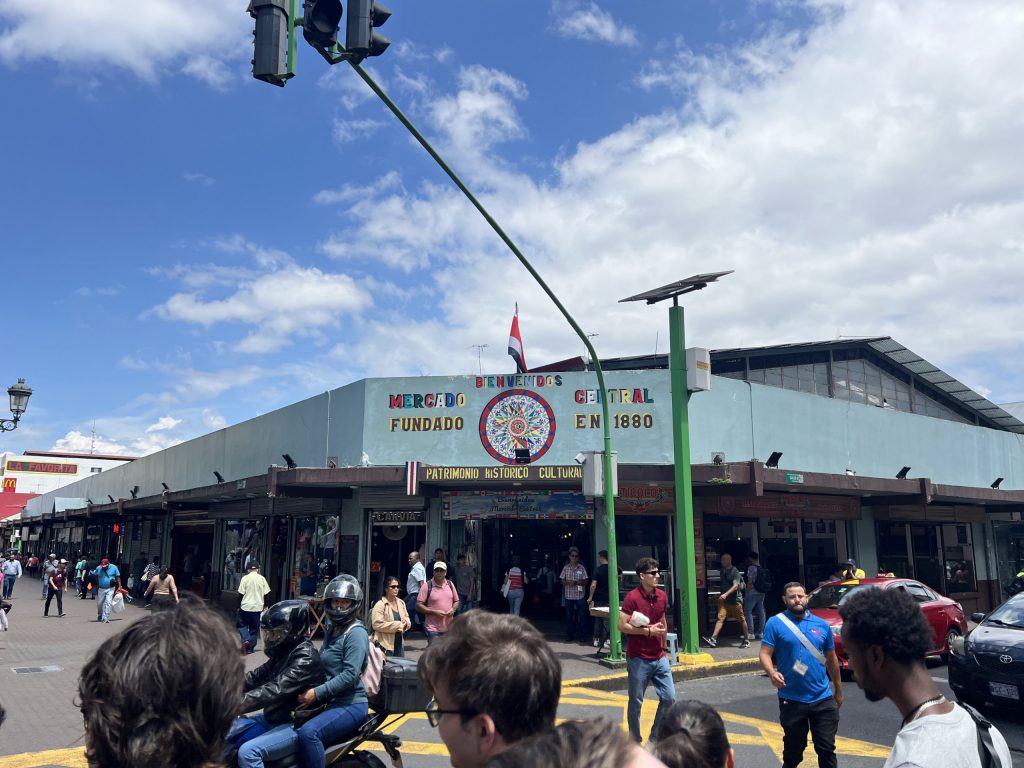
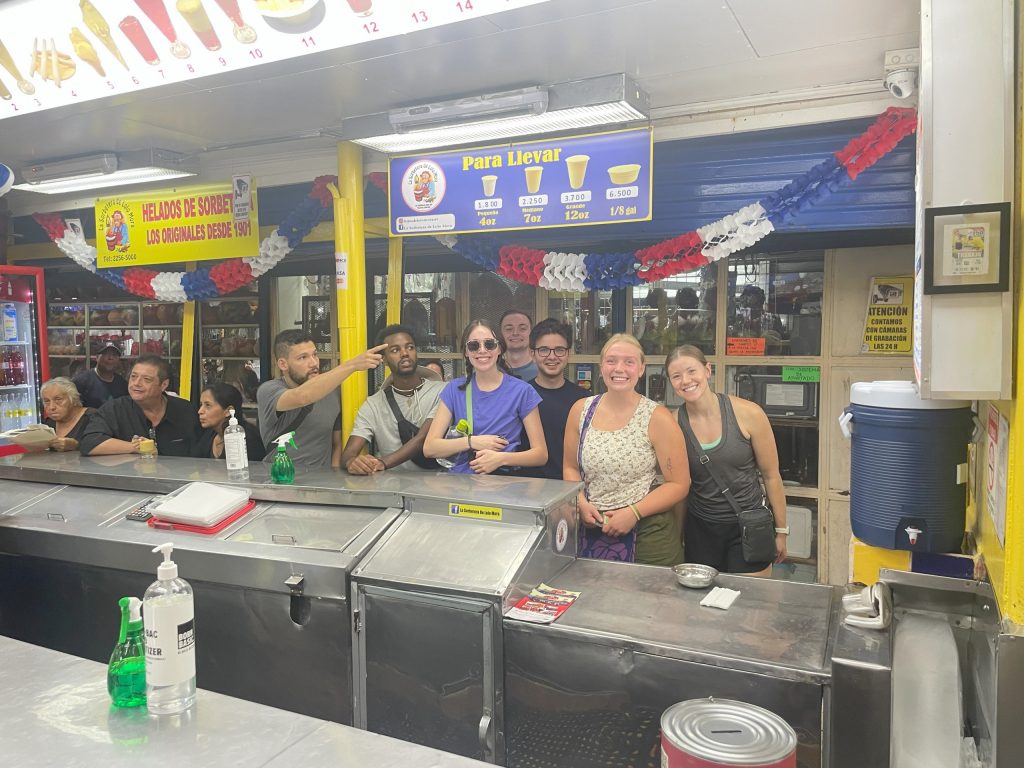
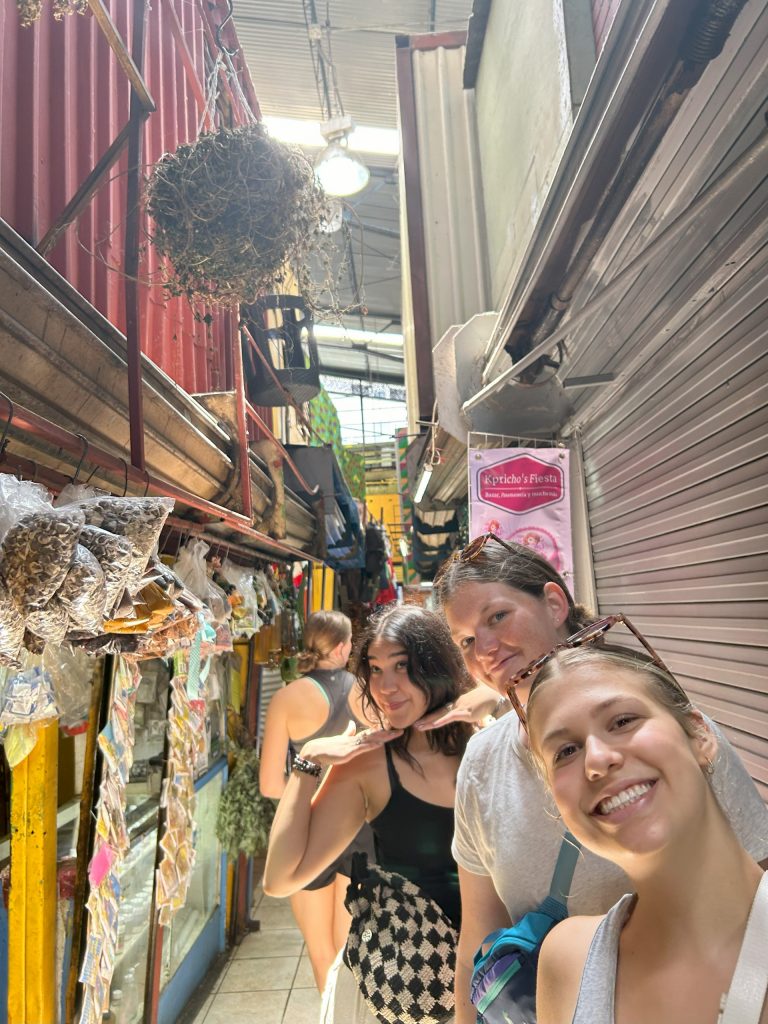
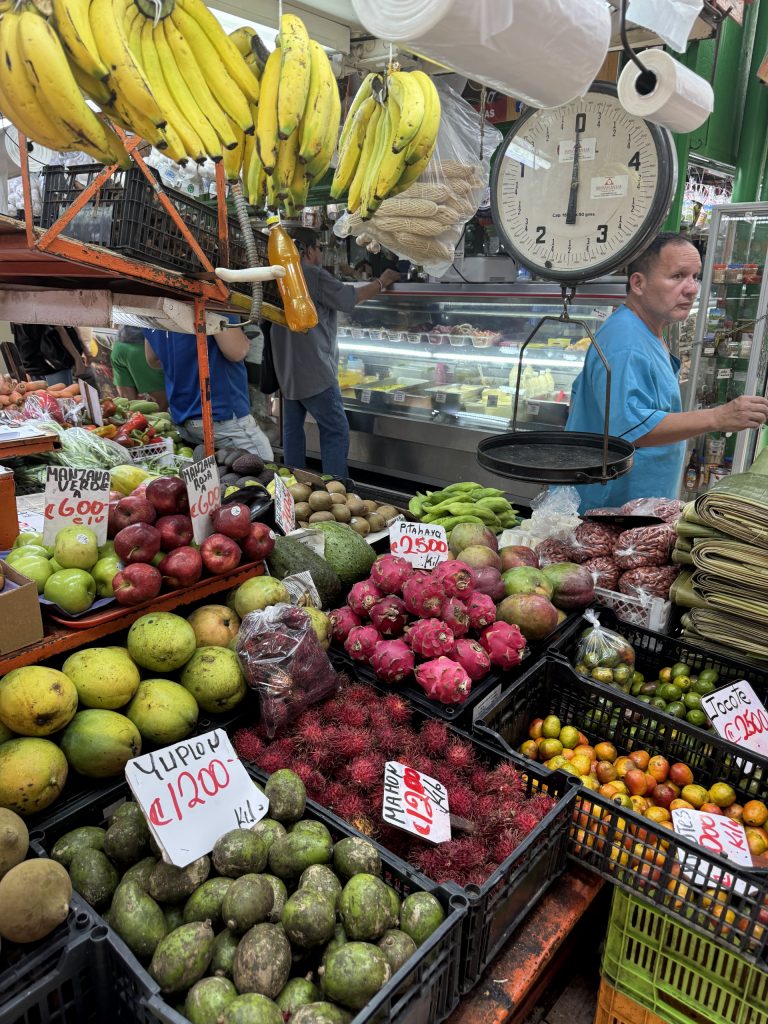

Leave a Reply